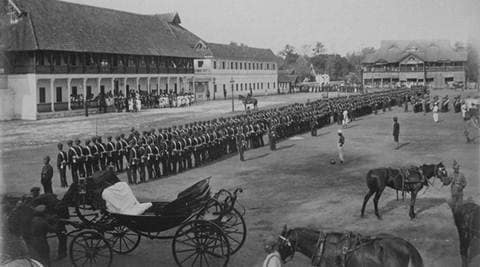
Kerala history

Kerala, also known as “God’s Own Country,” is a state located in the southwestern part of India. It has a rich and diverse history that dates back thousands of years. Here is a brief overview of Kerala’s history:
Ancient Period (Prehistoric to 3rd century BCE): Kerala has evidence of human habitation dating back to the Paleolithic era. The region was inhabited by various indigenous tribes. The Chera dynasty, one of the prominent ancient dynasties in Kerala, emerged around the 3rd century BCE. They ruled over a significant portion of modern-day Kerala and Tamil Nadu.
Medieval Period (4th to 16th century CE): During the medieval period, Kerala experienced extensive trade and cultural interactions with various civilizations, including the Greeks, Romans, Arabs, and Chinese. The spice trade was a major economic activity, attracting merchants from around the world. Kerala’s coastal cities, such as Muziris (present-day Kodungallur), became important ports of international trade.
The period also witnessed the rise of several powerful kingdoms in Kerala, such as the Cholas, the Pandyas, and the Rashtrakutas. In the 8th century, the Kulasekhara dynasty gained prominence and patronized the arts, literature, and religion. They established the famous Mahodayapuram (present-day Kodungallur) as their capital.
Colonial Era (16th to 19th century CE): The arrival of European powers marked a significant turning point in Kerala’s history. The Portuguese were the first to establish a presence in the region in the 15th century. They were followed by the Dutch and the British. The Europeans played a crucial role in shaping Kerala’s economy and culture.
The British East India Company gradually gained control over Kerala’s territories. The princely states of Travancore and Cochin maintained a degree of autonomy under British suzerainty. The British introduced modern education, implemented infrastructure development, and encouraged plantation agriculture, transforming Kerala’s society.
Independence and Post-Independence Era (20th century CE onwards): After India gained independence from British colonial rule in 1947, the princely states of Travancore and Cochin were merged to form the state of Travancore-Cochin. Later, in 1956, Kerala was formed by combining the Malayalam-speaking regions of the Malabar District, Travancore-Cochin, and Kasaragod.
Kerala’s post-independence history is characterized by its social reforms, focus on education and healthcare, and political activism. The state witnessed the historic “Land Reforms Act” in 1963, aimed at redistributing land to the landless and improving agricultural practices. Kerala also boasts high literacy rates and a strong healthcare system compared to other states in India.
Additionally, Kerala has been a hotbed of political movements and activism. Leftist ideologies have had a strong influence on the state’s politics, and the Communist Party of India (Marxist) has had a significant presence in the region.
Today, Kerala is renowned for its natural beauty, vibrant culture, and high human development indicators. The state continues to thrive in sectors such as tourism, agriculture, information technology, and healthcare while preserving its unique cultural heritage.